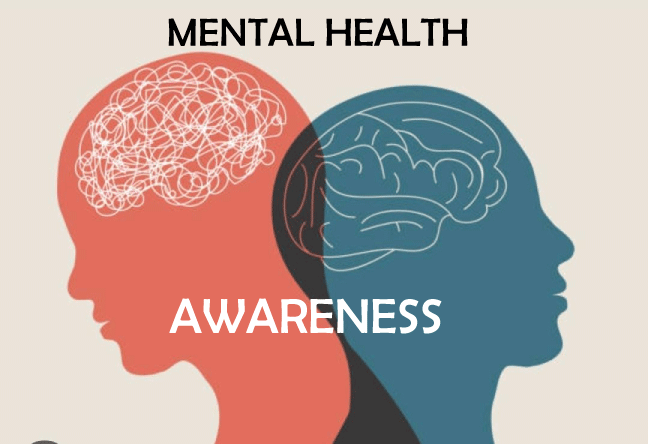Health DefinitionBeing healthy means not having any ailments, injuries, or diseases. It may also describe a person's total well-being, including their physical, mental, and social components. In a broader sense, health may also refer to a person's or a community's total capacity to carry out everyday tasks successfully. This involves having access to healthcare, having a healthy lifestyle, and other elements that affect one's total health and well-being. It also encompasses their physical, mental, and social well-being. 
Health is "a condition of total physical, mental, and social well-being and not only the absence of sickness or disability," according to the World Health Organization (WHO). It is important to remember that a person's health is a dynamic condition that can vary over a lifetime. A person's health can be affected by various variables, including genetics, lifestyle decisions, and access to treatment. Definition of Health in Different Fields1. In MedicineHealth is seen in Medicine as being healthy, meaning the absence of disease or harm. This concept is based on the conventional biological paradigm of health, which emphasizes identifying, managing, and avoiding illness and damage. The focus of this health model, which is frequently connected to Western Medicine, is on the function that hospitals, doctors, and other healthcare professionals play in preserving and regaining health. The biomedical approach also considers physiology and pathology in terms of health, treating diseases that are thought to be caused by aberrant physiology and pathological conditions. The biological model of health is predicated on the notion that the human body is an instrument that can be comprehended and fixed via scientific study. According to the paradigm, health is a condition of normality in which the body is free from illness, damage, and malfunction. It also views health as a condition that can be assessed using various diagnostic techniques and laboratory testing. This health paradigm is frequently criticized for being overly limited and reductionist since it ignores the social, psychological, and environmental aspects that might impact health. It also needs to consider the patient's viewpoint, and it only sometimes works for chronic problems. The fundamental model for identifying and managing illnesses and injuries, as well as the basis for all other models of health, is still this one. 2. In the Field of PsychologyPsychology defines health as a condition of equilibrium or balance in which a person can manage life's typical stressors and function well at work. The biopsychosocial model, which sees health as a dynamic interaction between biological, psychological, and social elements, is the basis for this concept of health. 
The psychological component of this concept of health is concerned with the mental and emotional wellness of the person. It examines the relationship between a person's ideas, feelings, and actions and their general health. It also looks at the impact of stress, trauma, and other life events on a person's mental and emotional condition. For instance, a person with good psychological health can successfully handle stress and preserve a stable social life. Conversely, someone with poor psychological health may have trouble managing stress and feel many unpleasant emotions. The biopsychosocial approach considers a person's social and cultural environment and mental and emotional condition. For instance, someone who is discriminated against or lives in poverty may be more prone to having psychological health issues. Compared to the biological paradigm, the biopsychosocial model of health is thought to be more all-encompassing and thorough. It considers the intricate relationships between biological, psychological, and social variables that might impact a person's health. It also considers the patient's viewpoint and potential societal influences on their health. Psychology generally views health as a dynamic state influenced by various internal and external factors. Health can be continuously maintained and improved through interventions that focus on the mental and emotional well-being of the individual as well as the social and cultural context in which they live. 3. In the Field of SpiritualityThe feeling of inner calm and connection to a higher force or purpose are indicators of spiritual wellness. This concept that people have a spiritual component apart from their bodily, mental, and emotional selves serves as the foundation for this definition of health. A sense of meaning and purpose in life, a connection to something more than oneself, and a feeling of inner calm and happiness are all characteristics of spiritual health. Other activities that aid people in connecting with their sense of meaning and purpose include meditation, prayer, and other religious or spiritual practices. How to Maintain Good Health?Maintaining good health involves a combination of factors, including: 1. Eating a Healthy Diet: For optimal health, a balanced diet is necessary. A varied intake of fruits, vegetables, whole grains, lean meats, and healthy fats should make up a balanced diet. Vitamins, minerals, and antioxidants, vital for sustaining general health, are abundant in fruits and vegetables. Fiber from whole grains is beneficial for maintaining a healthy digestive tract. Building and mending muscle tissue need lean proteins, and preserving heart health requires good fats like those in nuts and fatty fish. Additionally, it's critical to restrict or completely avoid processed, high-fat, and added sugary meals because they can lead to weight gain and other health issues. 2. Exercise Frequently: Keeping your body healthy requires regular physical exercise. Exercise can help you keep a healthy weight, strengthen your heart, and increase your energy and happiness. Regular exercise can also lower the chance of developing chronic illnesses, including diabetes, heart disease, and cancer. Most days of the week, the American College of Sports Medicine and the American Heart Association advise engaging in at least 30 minutes of moderate-intensity exercise. 3. Sufficient Sleep: Sleep is crucial for general health and well-being. The body consolidates memories, regenerates tissues, and controls hormones when we sleep. Lack of sleep can cause exhaustion, mood fluctuations, and a compromised immune system. Chronic medical issues, including obesity, diabetes, and heart disease, can be exacerbated by it. According to the National Sleep Foundation, adults should strive for 7-9 hours of sleep each night. 4. Stress Management: Stress is a natural part of life, but prolonged stress can harm physical and mental health. Chronic stress can result in heart disease, high blood pressure, and other health issues. It may likewise exacerbate sadness and anxiety. Using healthy stress-reduction techniques, such as exercise and meditation, or talking to a therapist, can help improve a person's health. 5. Avoiding Alcohol Abuse and Smoking: Both drinking too much alcohol and smoking can be harmful to your health. Smoking causes the most avoidable deaths globally and is associated with cancer and lung conditions. Alcoholism in excess can cause cancer, liver disease, and other health issues. 6. Routine Examinations and Screenings: Health maintenance requires routine examinations and tests. Check-ups can assist in identifying and preventing health issues early on when they are most easily treated. To prevent the onset of some chronic diseases, it is also critical to maintain current immunization schedules and preventative treatment, such as mammograms and colon cancer screenings. Women's HealthWomen's health refers to women's physical, emotional, and social well-being and encompasses a wide range of issues that are unique to or more common in women. Some of the key areas of women's health include:
Women need to stay informed about their health, schedule regular check-ups with a healthcare provider and speak openly and honestly with their providers about any health concerns they may have. It's also important for women to make healthy lifestyle choices, such as eating a balanced diet, exercising regularly, and avoiding risky behaviors. Men's HealthMen's health refers to men's physical, emotional, and social well-being and encompasses a wide range of issues that are unique to or more common in men. Some of the key areas of men's health include:
It's important for men to stay informed about their health, schedule regular check-ups with a healthcare provider, and speak openly and honestly with their provider about any health concerns they may have. Men must make healthy lifestyle choices, such as eating a balanced diet, exercising regularly, and avoiding risky behaviors. Mental HealthMental health is the general psychological well-being of an individual. It involves emotional, psychological, and social components and is crucial to a person's existence. A person's capacity to deal with life's obstacles, interpersonal connections, and everyday tasks is determined by their mental health, which impacts how they think, feel, and act. A sense of equilibrium and stability, as well as the capacity to successfully control one's thoughts, feelings, and behaviors, are traits of good mental health. On the other side, a person's functionality and quality of life may be negatively impacted by a variety of symptoms caused by poor mental health, including anxiety, sadness, mood swings, and behavioral issues. 
Genetics, life experiences, and environmental elements, including stress, trauma, and social support, are all variables that affect mental health. Several ways to enhance mental health include counseling, medication, self-care, and lifestyle adjustments. If you are exhibiting signs of poor mental health, it is crucial to seek assistance since early intervention can improve outcomes. It is critical to realize that everyone has ups and downs in their mental health at various points. Mental health is a continuum. Maintaining a healthy lifestyle, keeping in touch with family and friends, and asking for help when necessary are all ways to take care of your mental and physical health.
Next TopicAcid Definition
|
 For Videos Join Our Youtube Channel: Join Now
For Videos Join Our Youtube Channel: Join Now
Feedback
- Send your Feedback to [email protected]
Help Others, Please Share










